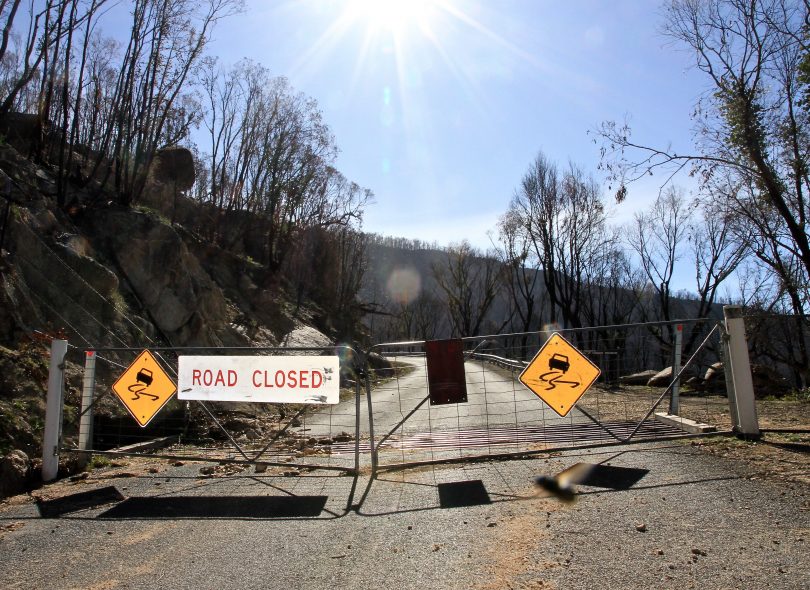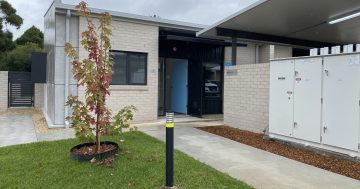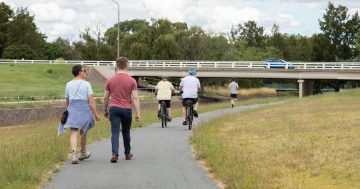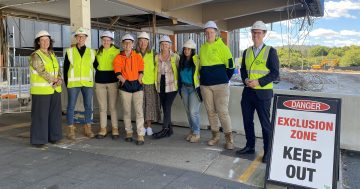
Boundary fences between rural properties and Namadgi that were damaged in the Orroral Valley bushfire are being fast-tracked by the ACT Government. Photo: Michael Weaver.
A number of footpath works and solar battery installations for public schools have been fast-tracked by the ACT Government as part of its economic stimulus package of ‘screwdriver-ready’ projects to mitigate the economic effects of COVID-19.
More than 20 footpaths covering a 6 km stretch will begin work in suburbs from Nicholls through to Isabella Plains, while a number of road safety upgrades including pedestrian crossings and refuges, speed humps and signage will be installed around Belconnen, Deakin, Oxley and Weston, the Minister for Roads and Active Travel, Chris Steel, said.
Funding has been allocated to repair and replace boundary fences between rural properties and Namadgi that were damaged in the Orroral Valley bushfire.
“These are projects identified by the community that were originally planned to be built over a period of years. Now we are building them over a period of months to create jobs at the time we need them most,” Mr Steel said.
“The improvements range from widening existing paths, completing missing links in the network and providing better access to key locations including schools and bus stops.”
The expedited infrastructure projects form part of the ACT Government’s $9.75 million stimulus measure to support the construction industry by fast-tracking small scale projects during COVID-19.
Two 40-kilowatt (kW) renewable energy storage systems are also being installed at Margaret Hendry School in Taylor, which is Canberra’s first zero-emission public school, and Caroline Chisholm in Chisholm.
New electric heaters will replace old gas boilers and older schools will receive upgraded roofs in addition to the solar panels that have already been installed on all public schools, Minister for Education Yvette Berry said.
“The government, through school education, has led change towards more environmentally sustainable buildings,” Ms Berry said.
“Every new school will be built with attention given to sustainability, with Canberra’s second carbon neutral school well underway in Molonglo to be ready for students at the start of 2021.”
The $100,000 project to install the two 40 kW batteries would allow renewable electricity to be stored at the school and used during high peak periods to reduce demand on the electricity grid, Minister for Climate Change and Sustainability Shane Rattenbury said
“As well as the local economic stimulus benefits for the ACT electrical trades sector, this fast-track project will reduce grid electricity demand and school energy costs,” Mr Rattenbury said.
“Their installations will be test cases for the Government. The project will provide us with valuable data on how to optimise the use of batteries to meet energy needs at the various schools in the ACT.”
Approximately $850,000 has been spent since 2018 on preparing public schools for the installation of batteries, and a further $250,000 has been set aside for the installation of the solar panels on new schools, the Government said.
“We expect that by demonstrating the multiple benefits of solar battery storage systems, they will pave the way for future expansion of batteries across other ACT schools and the community more widely,” Mr Rattenbury explained.
“At the same time, they will help the Territory improve its sustainability, move us closer to our goal of zero-net emissions by 2045, and help ensure we remain a world leader in addressing climate change.”
For more information, visit the ACT Government’s Fast-track program.
A full list of jobs available through the Government’s Jobs for Canberrans fund can be found at Jobs ACT.



















